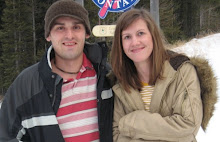The Amber Spyglass was the first children’s book to win the Whitbread prize; the trilogy came third in the BBC’s Big Read poll. The work continues to do well. Northern Lights was number three in the children’s bestsellers list at the end of 2004. And the two-part stage production is currently enjoying a second run at the National Theatre.
There is no need to ask why it has been so successful. The story is wonderfully inventive, one in which there are parallel worlds full of extraordinary people and creatures. It depicts with brilliant clarity the lives of its two young protagonists — Lyra, a defiant girl with a penchant for lying, and Will, a restless boy who has struggled with isolation and learnt to disguise himself from the eyes of the world. Together, the trilogy explores the theme of childhood friendship and portrays the process of adolescent self-awakening in a way that is as tender as you might find.
If the work has been taken to heart by so many readers, it has also caused consternation among many Christians. This is because the larger story, in which the children become involved, is the battle to overthrow God from his pedestal and establish ‘true freedom’ for all conscious beings. It is a cosmic tale, in which Pullman replays John Milton’s Paradise Lost, where a war in heaven precedes the fall of man, but in such a way that the story is reversed: in Pullman, God loses the war and the fall becomes the rebels’ final triumph.
This theological concern has prompted Christians to be rightly wary of the work. At the same time many like to avoid seeming unnecessarily extreme. We are familiar with books that routinely cause a stir. Is this, for example, like the Harry Potter series, where talk of banning a largely traditional boarding school story seems over the top? Is there more to be worried about in Pullman and, if so, what?
His Dark Materials is indeed some way from the Harry Potter series, taking as it does a theological framework and putting forward explicit, if reductive, views about God, Christianity and the church. The first book, Northern Lights, is a genuinely gripping tale. But Pullman’s agenda emerges here, and then as the books progress, increasingly dominates all that happens.
Christians should be aware of how his trilogy has made widespread and acceptable a version of Christianity that is little more than a caricature. The first of the film adaptations, due for release next year, will undoubtedly refocus attention on the books and add to this.
This article has been prompted by a hope that Christians who do choose to read the work (especially if, for example, their children read the work at school) will do so as critically as possible, aware of exactly how the author pulls off his version of the truth. But it is not my aim to respond to Pullman in an equally reductive manner. Instead, what I think we need to do is ask some straightforward questions of the trilogy and the worldview it offers.
Sunday, December 7, 2008
Subscribe to:
Post Comments (Atom)

No comments:
Post a Comment